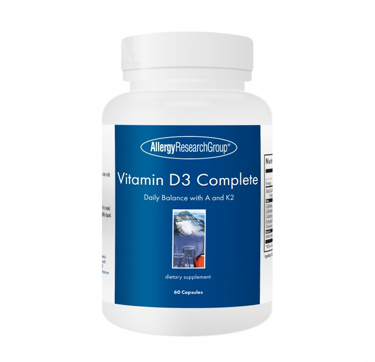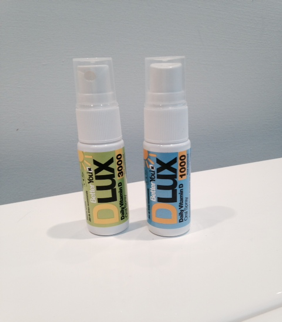
By Ruth Sharif, Nutritional Therapist
Vitamin D has emerged in recent years as the new “it” micronutrient because of the number of ways it can positively impact our health and emotional wellbeing. Also known as the ‘sunshine vitamin’, it is in fact a fat soluble hormone that your body can produce naturally.
However, during a UK winter, the sun won’t reach high enough altitude to provide us with the right kinds of UVB rays for making vitamin D in our skin, so at this time of year, our natural stores will have well and truly dwindled. The amount we produce also varies hugely depending on age, weight and how much skin is covered by clothing.
It is estimated that up to 90% of the UK population is deficient in vitamin D during the winter and government guidelines now recommend that most people take a supplement during this time. So if you are feeling a bit sluggish or down, or you have been fighting off winter bugs, it may be more than the grey skies that are to blame.
The most important role for vitamin D is to keep your bones strong. Even if you consume plenty of calcium, you cannot absorb it into your blood stream without vitamin D. This also affects muscle and nerve health as effective calcium absorption is critical here too. Muscle weakness and pain can be signs of vitamin D deficiency.
Vitamin D plays a vital role in regulating immunity and reducing inflammation. It works with T cells, the body’s natural killer cells, to fight off infection and disease. It is no surprise, therefore, that being deficient in vitamin D makes you more susceptible to colds and viruses. Vitamin D supplementation has also been shown to help those with auto-immune conditions.
Exposure to sunlight is often associated with a more positive mood, but many studies now suggest that vitamin D itself plays a key role in mood regulation and that supplements may help improve mild depression, in particular those suffering from Seasonal Affective Disorder (SAD). It has also been implicated in cognitive performance.
FOODS

We can obtain some vitamin D from certain foods. Salmon, trout, eggs, sardines and fortified milks are all good sources. However sunlight is the most effective source, so at this time of year it is worth supplementing.
You can get your blood vitamin D levels tested by your GP, or you can consult a nutritional therapist to arrange a test. A suggested intake of 2,000 – 3,000 IU per day for an adult at this time of year is a good starting point.
SUPPLEMENTS
Look for a D3 form of vitamin D supplement as it is more readily converted into the active hormone. The following are my recommendations to my clients:
Allergy Research Groups Vitamin D3 Complete with A and K2 for even more effective use of vitamin D by the body.

Alternatively, the Better You Vitamin D3 mouth sprays are very convenient if you would rather not swallow a capsule.

If you have any pressing nutrition questions, feel free to contact Ruth on ruth.sharif@me.com.
This month, Ruth is offering Digme clients a special 15% discount on her 12-week nutritional programme and health coaching. Contact her for more details:
Ruth Sharif, Nutritional Therapist, Dip Nut, Dip Nat, BANT.
www.ruthsharif.com
07791 296279





COMMENTS (0)
Be the first to comment!
Please login to comment